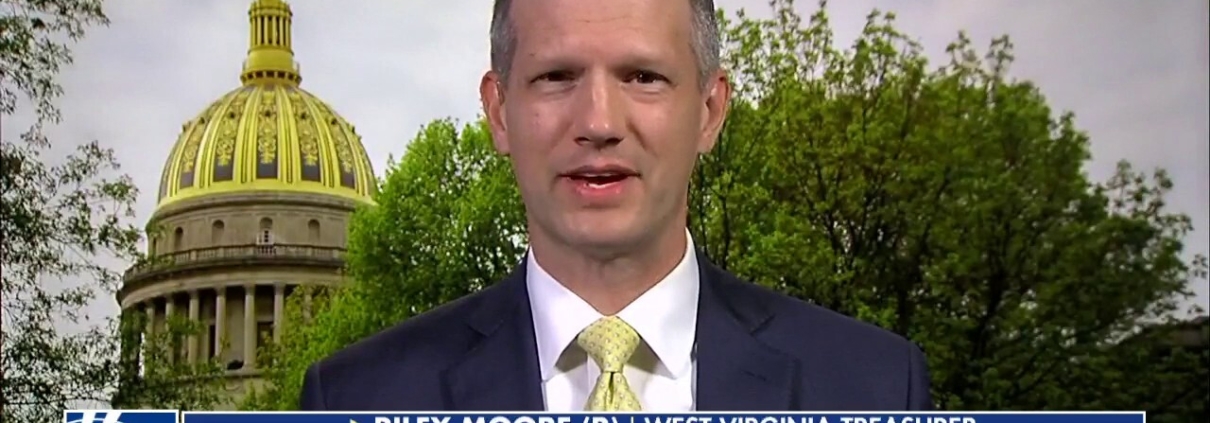The Power of The Purse – And Pensions
Here’s What You Need to Know
State financial officers – 36 of whom are independently elected – control more than $4.56 trillion in state-administered pension funds and $1.27 trillion in revenue collected by state treasuries. Now, they are increasingly recognizing those portfolios can be a political force that can greatly impact banks, asset managers, and firms that rely on financial markets.
That’s why, as Delve CEO Jeff Berkowitz last week wrote in American Banker, “In the November midterm elections, the twin tides of progressivism and populism will crash ashore, and financial institutions will need to look further down-ballot than ever before to assess the risks they face from incoming elected officials.”
While political risk analysis often looks at Congress or state legislatures, businesses need to be aware such risks extend beyond oversight and legislation. Traditionally, governors are the main state executives shaping policy debates, but other statewide officeholders responsible for specific government functions advocate for policy changes too. As they do, firms in and out of the financial sector will need to prepare for very real legal and financial consequences.
Subscribe to Receive Insights
"*" indicates required fields
How Commerce Got Politicized
The multistate tobacco settlement in the late 1990s helped state attorneys general (AG) recognize the power they had to pressure disfavored industries or signal opposition to a president. Not surprisingly, over the past 10 years campaign spending on AG races has more than tripled, fueled by corporate funds flowing into national groups like the Republican Attorneys General Association and Democratic Attorneys General Association.
In recent years, state AGs have blended legal action with political headlines on a wide range of policy issues, from suing energy firms over climate change to seeking to overturn the Affordable Care Act to making it easier for local prosecutors to sue financial services firms to seeking lower drug prices and even curtailing EPA regulatory authority.
AGs are not alone though. The most recent statewide officials to enter the political arena are state treasurers.
Treasurers Join the Fray
Between state government expenditures and investments by more than 300 state-administered pension funds, state treasurers have considerable market power, not to mention their offices’ sway over market regulation. Now they are wielding this power in a wide range of industries and companies – often from competing partisan perspectives.
To Drill or Divest. Last year, 15 state treasurers launched a coalition opposing financial institution’s ESG commitments that could lead to defunding or divesting from fossil fuel-related project. This summer, two of those officials – Texas Comptroller Glenn Hegar and West Virginia Treasurer Riley Moore – announced the disqualification of a number of banks and asset managers under recently passed laws prohibiting their states from doing business with “financial institutions that are engaged in a boycott of energy companies.” Last month, a coalition of 14 Democratic treasurers responded, signing a letter objecting to “blacklisting financial firms that don’t agree with their political views.” However, that has not stopped California’s state treasurer is pushing her state’s teachers’ pension fund to divest from fossil fuels, which Maine’s treasurer began last year.
Stand With American Allies. 35 states have passed legislation restricting state public pension fund investments in or other state commerce with companies that endorse or comply with the anti-Israel Boycott, Divestment, and Sanctions (BDS) movement. This summer, Arizona Treasurer Kimberly Yee warned investment firm Morningstar its environmental, social and governance ratings subsidiary was violating her state’s anti-BDS law. Last September, Yee was the first of seven state financial officers from both political parties to divest pension funds from Unilever after its subsidiary Ben & Jerry’s announced it would no longer allow sales in Israeli settlements. As the Biden Administration’s pursuit of a renewed Iran nuclear deal roils Middle East security politics, expect growing awareness of how firms engage in the region.
Step Away from American Enemies. When Russia invaded Ukraine, the push for companies to divest did not just come from the private sector and the public. State treasurers moved to divest their pension funds from companies and funds that included Russian interests. If the U.S. and China continue at least selected decoupling, this trend could become very complicated for banks and asset managers.
Social Issues Carry Financial Consequences. In 2019, Maryland Comptroller Peter Franchot declared his state’s pensions would divest from any and all Alabama-based companies in reaction to that state’s strict abortion law. Now, as companies respond to the Dobbs decision by covering employee abortion travel costs, opposite pressure could come from red states. Similarly, at least four state treasurers — Connecticut, Rhode Island, Nevada, and Massachusetts — have divested or are seeking to divest from investment funds with firearms-related holdings. Expect such actions to expand as the culture wars increasingly play out in state capitals.
Look Before You Leap
The politicization of commerce puts business in a precarious position. States are becoming increasingly polarized in their political and social issue demands on companies, and that makes it more difficult for companies to take either side without facing consequences. Adding to the confusion, while the principles in question can seem straightforward — every vote should count, climate change is real, gun violence should be thwarted — behind these shared principles are often expectations from well-coordinated activists that firms will endorse divisive, partisan solutions.
With state treasurers becoming a growing political force, companies can now face real financial consequences if their business practices and public statements do not comport with the views and objectives of elected officials who hold sway over state finances and investment. To avoid the pitfalls, companies must understand the full range of policymakers and stakeholders before starting their corporate advocacy. They should also be mindful of how they engage in policy and cultural debates, because just as in physics, every political action has an (un)equal and opposite reaction.



